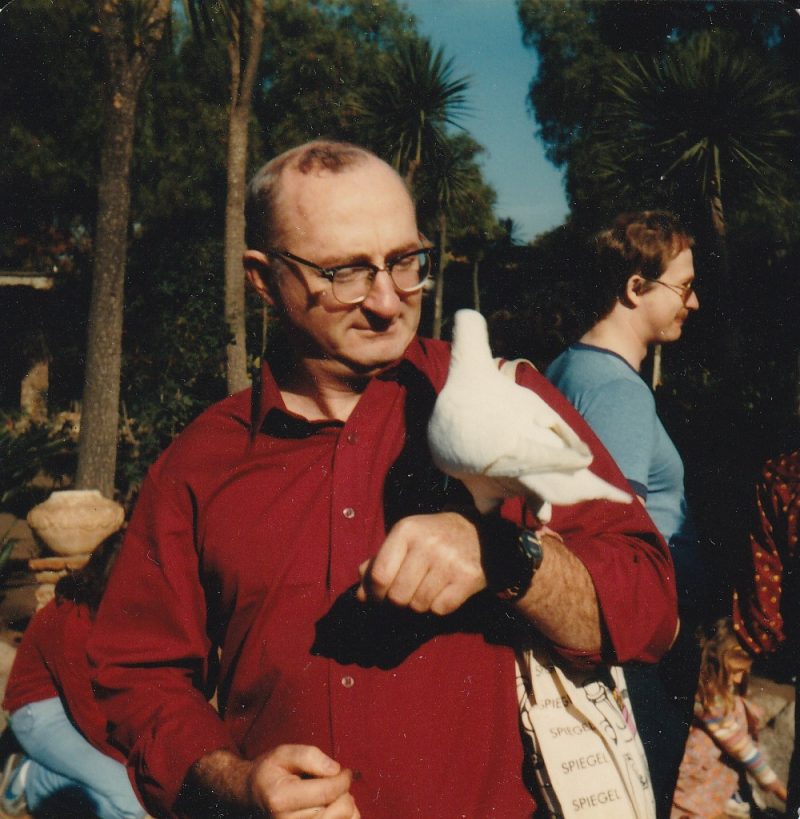
This article was written by Mary Scott
William H. Maher, retired veterinarian and the original owner of Camden Pet Hospital, passed away at the VA Medical Center in Minneapolis on September 21 following a stroke. He was 86.
Dr. Maher grew up in rural western Minnesota and by the time he was in eighth grade, he knew he wanted to be a veterinarian. After serving in the U.S. Army, he graduated from Iowa State University with a degree in veterinary medicine. He completed internships in Boston and Omaha before he and his wife, Jacquelyn, moved to the Twin Cities in 1964. There he began his first job at a small animal clinic in Brooklyn Center.
Maher is remembered for his love of animals and care for pet owners. He worked at several pet hospitals in the Twin Cities and became a consultant for the Animal Humane Society in Golden Valley in 1969. He was creative in finding ways to make life better for pets and their owners.
“He looked differently at animals,” said former Humane Society colleague Leslie O’Donnell. While some would see an animal, such as one with ambulatory challenges, as unadoptable, Dr. Maher would see it as one that would be loved by the right person. He was also responsible for starting the Humane Society’s behavioral rehabilitation program for animals that had behavioral issues resulting from trauma and abuse. The rate of animals that became adoptable after going through the program helped raise the Humane Society’s placement rate to 80-90 percent, said O’Donnell. “He had a huge impact on that.”
Maher was living in Crystal when he decided to open his own veterinary hospital. “He saw there wasn’t a clinic in the [Camden] area,” said Jacquelyn, and made the decision to start a practice in Camden. In 1978, Dr. Maher purchased the building at 1401 44th Avenue North, now the home of the North Minneapolis Pet Resource Center, and he opened for business.
Maher’s commitment to the welfare of small animals showed in his work at Camden Pet Hospital. A prime example was when the parvovirus epidemic hit the area in the early 1980s. Parvovirus, a highly contagious disease, causes severe vomiting, diarrhea and ultimately death in dogs in a few short days, and there was no treatment for it at the time. Several of the clinic’s pet owners lost their dogs to the virus, while Dr. Maher scrambled to find a solution. Hearing of an experimental method of protecting dogs by injecting them with a feline distemper vaccine, he reached out to each one of the clinic’s canine pet owners and encouraged them to bring their dogs in to get vaccinated. This experiment was a success, and the vaccination became a part of the clinic’s annual canine preventative healthcare plan.
Under Dr. Maher’s ownership, Camden Pet Hospital also provided financial support to Henry High School’s coed sports programs and operated an annual rabies vaccination clinic at Webber Park during Camden Showboat Days. Vaccinations were offered at a reduced rate as a service to the community and a way to provide healthcare to more of the area’s canine residents.
Dr. Cynthia Fetzer took her first job as a veterinarian at Camden Pet Hospital in 1989. A few years later, she was working in emergency veterinary medicine in St. Paul when Dr. Maher contacted her to say he planned to retire and offered to sell her the clinic. She purchased it in 1994 and owned it until her retirement in 2021.
The two doctors shared an interest in the well-being of animals and Camden residents. Under Dr. Maher’s ownership, the clinic developed a standard of “friendly, quality service for ‘pets and their people’ “ (Camden News, August 1994), a tradition which Dr. Fetzer continued.
“He had a passion for the community and working with the community,” said Dr. Fetzer. Dr. Maher understood that each person, pet, and set of circumstances was unique. “He worked with the client and looked for what worked for the client and the pet. He listened.”
After selling the Camden Pet Hospital, Maher continued working at the Humane Society until 2003 and was involved in poultry vaccine development for a number of years. In his free time, he enjoyed traveling with Jacquelyn to various destinations around the world. He was also a solo missionary of sorts, making dozens of trips to Cuba to provide upgraded computer equipment to veterinary schools and basic provisions for its human and animal residents.
“I’m proud to know him,” said Dr. Fetzer. “He was a great man.”


